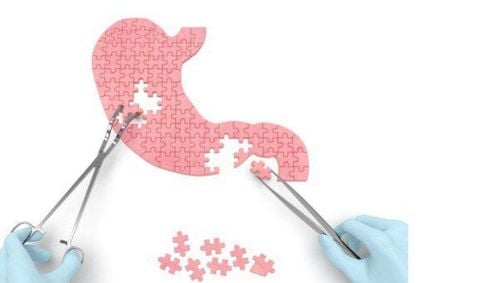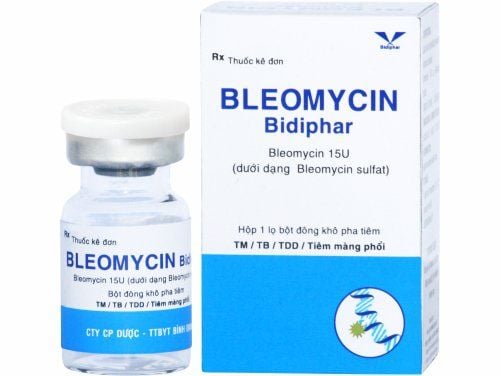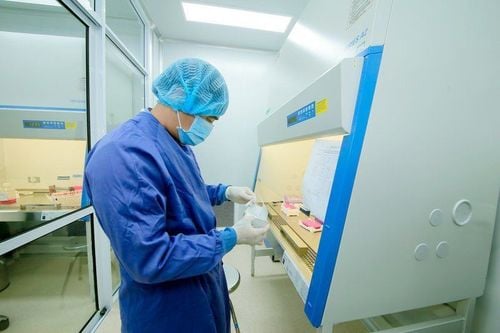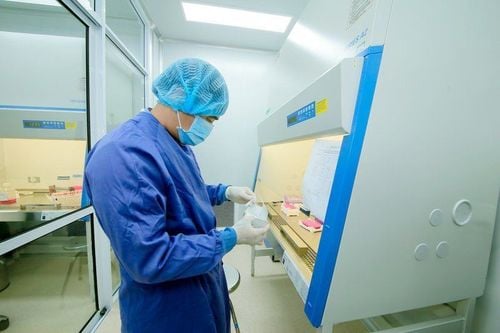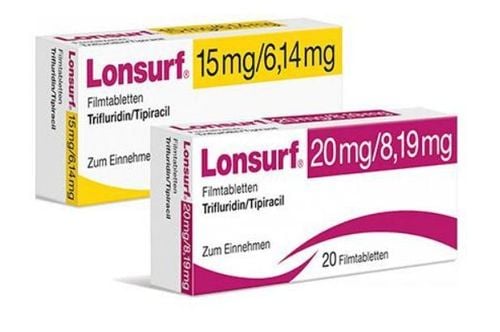This is an automatically translated article.
Stomach cancer is the cells of the stomach that grow out of control, forming tumors in the stomach, which can spread to surrounding and distant organs (distant metastases).
Diseases related to HP bacteria (Helicobacter pylori), diet and some agent and environmental factors.
The disease often manifests silently in the early stages, so the patient is often detected when it is in the late stage.
2.Causes of Stomach Cancer Causes of stomach cancer are often related to precancerous lesions, environmental factors, endogenous factors and genetic factors.
Precancerous lesions: Prolonged chronic gastritis if left untreated will lead to chronic atrophic gastritis of the gastric mucosa. Followed by metaplastic changes of cells, then dysplastic changes from mild, moderate to severe. Persistent dysplasia eventually leads to gastric cancer. Helicobacter pylori is considered a cause of stomach cancer. HP causes chronic atrophy of the gastric mucosa, causing precancerous lesions. Living habits: Eating foods containing nitrates such as salted fish meat, pickled vegetables, grilled meat, smoked meat .. increases the risk of stomach cancer. Socio-economic status: people of low economic level have twice the rate of gastric cancer in the body region. However, people with a high economic level have a higher rate of gastric cancer in the cardia. Obesity: Obese people are more prone to stomach cancer than the general population. Blood group: People with blood group A are more prone to stomach cancer than other blood types. History of previous gastric bypass surgery: patients who have had gastric bypass surgery have the highest cancer risk after 15-20 years. Heredity: Stomach cancer is associated with a number of genetic syndromes such as adenomatous polyposis, hereditary nonpolyposis colorectal cancer... CDH1 gene mutations have been shown to be associated with gastric cancer. . CDH1 is a gene that inhibits the growth of gastric cells, when mutated, this control is lost, leading to cancer.

Thói quen sinh hoạt không khoa học là một nguyên nhân dẫn đến ung thư dạ dày
Abdominal pain: often the first suggestive symptom, persistent pain in the epigastrium (above the navel). The first time the pain may subside after eating, then the pain is continuous. Ợ gas: Ợ gas can be experienced after eating, eating hot spicy food or drinking carbonated water but quickly disappears. Continuous burping could be a symptom of stomach cancer. Skinny weight loss: Anorexia, no appetite leading to weight loss or possibly unexplained weight loss. Nausea and vomiting: vomiting and nausea with loss of appetite, heartburn can be a symptom of stomach cancer Vomiting or passing black stools: stomach cancer can cause gastrointestinal bleeding leading to vomiting blood or passing stools. in addition to black stools (a lot of stomach bleeding can pass bright red blood, which is a danger sign) Swallowing: Tumor near the cardia or the gastro-oesophageal junction can cause choking. 4.Risk subjects for gastric cancer The following risk subjects need to be screened for stomach cancer:
Elderly age (> 50 years old) Having a family member with stomach cancer, adenomatous polyposis familial or hereditary nonpolyposis colorectal cancer People with chronic gastritis - duodenal ulcers, HP infection People who have had gastric bypass surgery People with a habit of eating salted foods, baked goods, preserved foods Poor quality People who regularly smoke and drink alcohol People who have symptoms of stomach cancer: abdominal pain, belching, prolonged heartburn, ... Screening for stomach cancer in high-risk subjects including esophagogastroduodenoscopy and tumor markers CEA, CA 72-4, CA 19-9. If abnormalities are found, the doctor will order additional tests.
Gastroscopy: Inserting the endoscope into the stomach through the esophagus helps to directly observe the lesion and its properties: location, size, shape, level of invasion. Conduct biopsies of lesions to make pathology. Tumor markers test: CEA, CA 72-4 and CA 19-9.
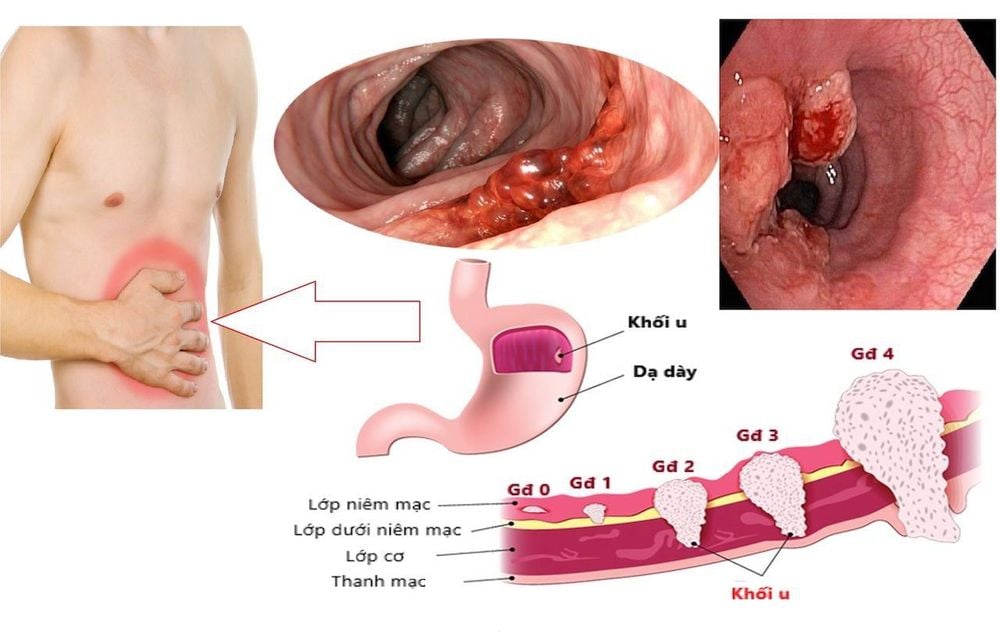
Khám sức khỏe định kỳ phòng ngừa ung thư dạ dày
5.Stomach cancer prevention Complete treatment of peptic ulcer disease, especially when HP infection is accompanied by
Lifestyle changes: Eat healthy, eat lots of vegetables, limit baked goods , salted food. Practice sports. Do not smoke, drink alcohol Periodic health examination 6.Measures to diagnose stomach cancer Diagnosis of stomach cancer is based on clinical and subclinical signs.
Signs of stomach cancer: Abdominal pain, weight loss, vomiting, nausea, choking, black stools...
Tests to diagnose stomach cancer:
Flexible gastroscopy and biopsy : the best method to diagnose stomach cancer. Endoscopic gastric ultrasound: helps to evaluate the extent of tumor invasion and regional lymph node metastasis. Computed tomography: assess the extent of surrounding invasion, detect lymph node metastases and distant metastases. Abdominal ultrasound: detect metastatic lesions of lymph nodes and other organs. Tumor markers: CEA, CA 72-4 and CA 19-9. 7.Measures to treat Stomach Cancer Treatment of stomach cancer depends on the stage of the disease, the accompanying diseases, and the patient's condition.
There are the following treatment methods: surgery, chemotherapy, radiation therapy, targeted therapy and immunotherapy. Of these, surgery is the main and most important method. Other methods are considered in combination in postoperative adjuvant therapy or preoperative neoadjuvant therapy.
Surgical removal of gastric cancer: early gastric cancer can be treated by endoscopic EMR, ESD techniques. Patients may be indicated for total or near total gastrectomy depending on the stage of the disease. Chemotherapy: Using chemicals to kill cancer cells and stop cancer cells from growing. Chemotherapy can be used before or after surgery. Radiation therapy: Chemotherapy and radiation therapy can be given at the same time after surgery. Targeted therapy: Using monoclonal antibodies against the epidermal growth factor Her-2/neu (Trastuzumab), monoclonal EGFR epithelial growth factor receptor receptor blocking antibody (cetuximab) or antibodies A monoclonal vascular growth factor inhibitor VEGF (bevacizumab). Immunotherapy: Using drugs that affect the patient's immune system, making the immune system capable of killing cancer cells.
Currently, Vinmec is the first medical system to apply two new immunotherapies in cancer treatment, which are therapies to strengthen the autologous immune system. The body's immune cells (here, Natural Killer cells NK and cytotoxic Tc cells) will be taken from the patient's body, they will be proliferated and activated in the room. experiment and then infused back into the patient's body. These cells, after being activated, will have the ability to destroy cancer cells. This is an advanced method that brings high hope to cancer patients.
Follow-up and prognosis Periodic follow-up every 3 months for the first 2 years, then every 6 months in subsequent years
Need clinical examination, chest X-ray, abdominal ultrasound and testing of indicators tumor score on reexamination.
Gastroscopy if there is a suspicion of recurrence at the anastomosis
In addition, it is necessary to pay attention to the nutritional status of patients after gastric bypass surgery.
Please dial HOTLINE for more information or register for an appointment HERE. Download MyVinmec app to make appointments faster and to manage your bookings easily.
SEE MORELearn about autologous immune system-boosting therapy to support cancer treatment Methods of treating stomach cancer Nutrition for stomach cancer patients




